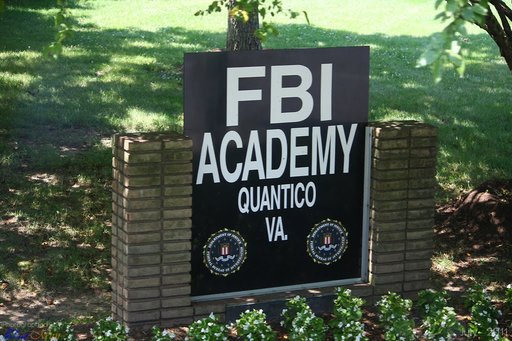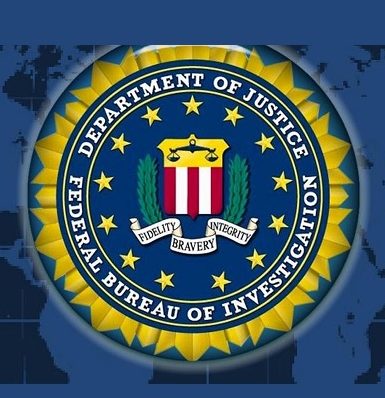Is The FBI Counter-terrorism Program Totally Broken?
In the wake of the Orlando Pulse gay nightclub massacre that took 50 lives, injuring 53 others, a number of questions have arisen about why the FBI investigations of the perpetrator, Omar Mateen, didn’t prevent him from carrying out his homicidal jihad. Moreover, after 9/11, Fort Hood, Chattanooga, Garland, San Bernardino and now Orlando, questions have arisen about conduct of Counter-terrorism programs of the DHS and especially the FBI, that abets willful blindness to the threat posed by radicalized domestic Muslims.
This is especially disturbing in the wake of the largest mass shooting in American history and the largest domestic toll in an Islamic terror attack since 9/11.
 FBI Director James Comey after the attack said that in 2014 it had run operatives against him, conducted surveillance including electronic, yet it didn’t provide enough evidentiary material to bring charges. Perhaps they may have even spoken with fellow co-workers who now allege to the media that Mateen expressed violent views. Dr. Sebastian Gorka, counter-terrorism expert and author of the acclaimed, Defeating Jihad; the winnable War, said on Hannity’s America:
FBI Director James Comey after the attack said that in 2014 it had run operatives against him, conducted surveillance including electronic, yet it didn’t provide enough evidentiary material to bring charges. Perhaps they may have even spoken with fellow co-workers who now allege to the media that Mateen expressed violent views. Dr. Sebastian Gorka, counter-terrorism expert and author of the acclaimed, Defeating Jihad; the winnable War, said on Hannity’s America:
I work with FBI agents. They are loyal patriotic Americans. But the problem is the politically correct matrix imposed by the Department of Justice on top of the FBI.
Watch the Fox News Hannity interview with Dr. Gorka.
Following the breaking news about Mateen’s jihad, the FBI disclosed it had conducted two investigations in 2013 and 2014 on Mateen’s alleged connections to al Qaeda They also investigated his relations with Moner Abu-Salha, the first American suicide bomber in Syria who attended the same Florida Mosque. Abu-Salha fled Florida for Syria to join Al Qaeda affiliate Jabhat al Nusrah. Mateen had allegedly listened to tapes by the American born leader of Al Qaeda in the Arabian Peninsula, Anwar al-Awlaki, and watched on-line videos of ISIS beheading or burning victims.
We now know that Mateen and his second wife Noor Salman had traveled to Orlando ostensibly on a trip to Disney World. That may have allowed him to case the premises of the Pulse nightclub as well as Disney properties in Orlando. His wife knew of his purchases of the Sig Sauer MCX semi-automatic carbine and Glock pistol with large capacity magazines. She alleges entreating him to desist from carrying out his jihad. But she didn’t notify the police and now she is the subject of a grand jury investigation that might bring possible charges of being an accomplice in her husband’s atrocities.
There are suggestions by his former wife that Mateen may have exhibited conflicted perceptions of his sexual identity that might have been a factor in his violence towards her that ended the four month marriage seven years earlier. That might have been a motivating factor for his undertaking his jihad to cleanse this fault that under Islamic theology criminalizes homosexuality.
Dr. Michael Welner, noted forensic psychiatrist, Chairman of the Forensic Panel, expert witness for the prosecution in high profile mass killing and terrorist cases was interviewed by George Stephanopoulos on ABC’s Good Morning America, June 15, 2016 about his views on the Orlando Jihad by Mateen. Welner differentiated mass killings between ‘vanity’ spectacles done by an individual versus ‘ideological’ ones that involved co-conspirators. Orlando fit the latter category, as Mateen’s wife Noor Salman was a co-conspirator who assisted her husband in casing locations. He notes that she easily could have stopped it by going to police, but didn’t. This mass killing he suggested was an ideological driven spectacle mass killing “targeting Americans, targeted America and was allied with Islamic supremacists supporting destruction of America.” Mateen knew that there were many defenseless people packed in the Pulse gay nightclub that he could kill efficiently. As to his sexual orientation conflicts, Welner noted that jihad committed during Ramadan begets forgiveness under Islamic law. As to Mateen’s own sexual conflicts, Welner noted that was prevalent in the male culture of Afghanistan.
Watch, Dr. Welner’s Good Morning America interview.
The Daily Mail disclosed that Omar Mateen sought to become a full time law enforcement officer only to be booted out of the Indian River State College Law Enforcement Academy program. This was in 2015 a year after the FBI closed out the second investigation for “lack of substantive” evidence and communicated that to his employer, the British owned global private security giant, G4S. G4S that had employed him as a private security guard after the requisite criminal records check and passing a standard psychological exam.
Note these takeaways from the Daily Mail report:
- Omar Mateen tried becoming a full-fledged police officer last summer at the police academy at Indian River State College.
- He applied for an intensive six-month law enforcement academy in his hometown of Fort Pierce, Florida.
- Officials at the Indian River State College’s Criminal Justice Institute were so concerned about his ‘deceptive’ behavior they rejected him.
- He was reported to the Florida Department of Law Enforcement and the State police
‘I believe he wanted to get hired by a police force to carry out whatever nefarious plan he had while in a uniform,’ said an informed insider. - A school higher-up called the FDLE to report Mateen as someone who should be watched.
- The FDLE’s response: He was already on a watch list for potential terrorist affiliation.
What does that tell you about the sad state of affairs in FBI Counter-terrorism and ability of Florida local law enforcement to see through Mateen’s braggadocio to uncover his nefarious intent to commit homicidal jihad?
Is it time to take counter-terrorism out of the FBI and put it into an U.S. equivalent of Britain’s famed domestic intelligence agency, MI5? That was a proposal made a decade ago by Federal Judge in the 7th Circuit of Appeals in Chicago, Hon. Richard A. Posner. See: “We Need our own MI5.” Note what he wrote and think of how Mateen fell through the proverbial cracks of the FBI’s investigative process:
We do not have a counterpart to MI5. This is a serious gap in our defenses. Primary responsibility for national security intelligence has been given to the FBI. The bureau is a criminal investigation agency. Its orientation is toward arrest and prosecution rather than toward the patient gathering of intelligence with a view to understanding and penetrating a terrorist network.
The bureau’s tendency, consistent with its culture of arrest and prosecution, is to continue an investigation into a terrorist plot just long enough to obtain enough evidence to arrest and prosecute a respectable number of plotters. The British tend to wait and watch longer so that they can learn more before moving against plotters.
The FBI’s approach means that small fry are easily caught but that any big shots who might have been associated with them quickly scatter. The arrests and prosecutions warn terrorists concerning the methods and information of the FBI. Bureaucratic risk aversion also plays a part; prompt arrests ensure that members of the group won’t escape the FBI’s grasp and commit terrorist attacks. But without some risk-taking, the prospect of defeating terrorism is slight.
MI5, in contrast to the FBI (and to Scotland Yard’s Special Branch, with which MI5 works), has no arrest powers and no responsibilities for criminal investigation, and it has none of the institutional hang-ups that go with such responsibilities.
Couple Posner’s criticisms of the FBI criminal investigative approach with its obsessive political correctness and you are bound to have failures nailing jihadis out to do us harm.
Michael Leiter, former head of the National Counter Terrorism Center during the Bush and early Obama eras and Ali Soufan, former FBI supervisory special agent involved with investigating major international and domestic terrorist plots were interviewed, June 13, 2016 on the PBS News Hour about why it is increasingly difficult to identify likely jihadis. Note their responses:
Michael Leiter, former director National Counter Terrorism Center
After San Bernardino, after Paris. This is an incredibly hard fight.
And we really revolutionized how we did counter-terrorism post-9/11. And we have gotten so much better at working against complex plots overseas. But I think we’re approaching the point where we have to seriously consider how we revolutionize counter-terrorism now to optimize our ability to find these.
And it would require huge changes. It would require a lowering of the bar to do surveillance in certain operations. … It would require a huge increase in resources, both for the FBI and state and local law enforcement.
These are all big choices. And as tragic as this is, it still isn’t clear to me that we have the political will to go down that path.
Ali Soufan, former FBI supervisory special agent and head of his own security firm
Since 9/11, we have been very successful tactically in combating the threat. Unfortunately, when it comes to the ideology, we haven’t been that successful. We have been behind the eight-ball. We didn’t do much to counter the incubating factors that are leading into this. We haven’t been countering the ideology and countering the narrative as we should online.
I think we need to develop some kind of 21st century policing model where we can include the community inside the pipe, that they feel that they are part of the solution, not part of the problem.
Back in 2007, I had the occasion with a colleague to meet and confer with two FBI supervisory agents at the FBI Academy in Quantico, Virginia. They were on the faculty. They had been involved in uncovering and busting jihadis in California. One of them was among the five special agents who were Arabic speakers in the FBI at the time. We conferred about the status of the agency’s Counter-terrorism program and its emphasis on making arrests leading to prosecutions. I had just completed an expose on the translator scandal at both the FBI and contractors for the War in Iraq, revealing bias against qualified Arabic and Farsi speakers who were non Muslims, Jews and Christians.
After we discussed their views they asked what we thought of the FBI counter-terrorism program. I commented that it was flawed. They smiled and shook their heads knowingly.
EDITORS NOTE: This column originally appeared in The Nat Sec Daily Brief.

